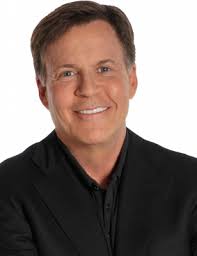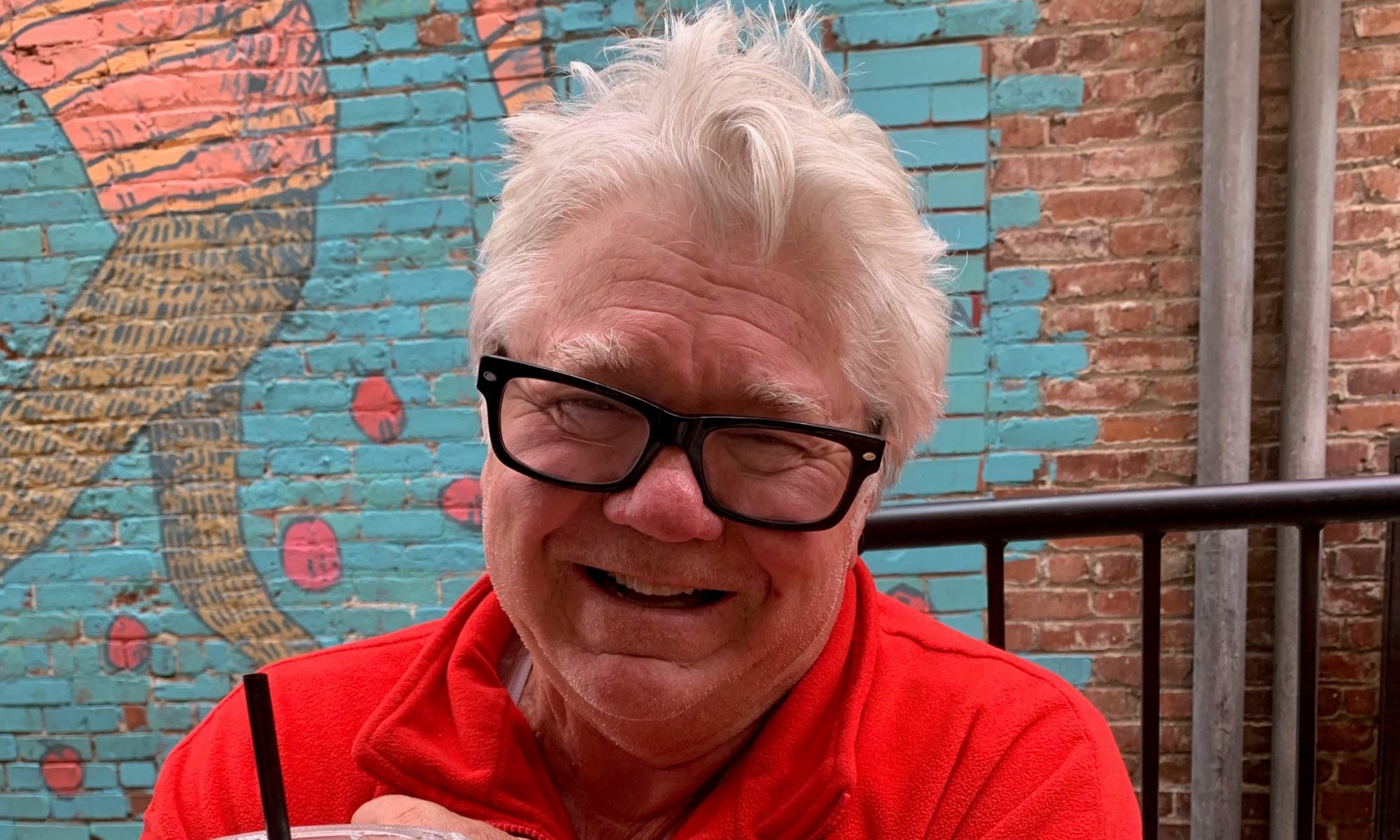A Redlands Connection is a concoction of sports memories emanating from a city that once numbered less than 20,000 people. From pro football’s Super Bowl to baseball’s World Series, from dynamic soccer’s World Cup to golf’s and tennis’ U.S. Open, major auto racing, plus NCAA Final Four connections, Tour de France cycling, more major tennis like Wimbledon, tiny connections to that NBA and a little NHL, major college football, Kentucky Derby, aquatics and Olympic Games, that sparkling little city sits around halfway between Los Angeles and Palm Springs on Interstate 10. Bob Costas never showed up in Redlands, but he called twice. – Obrey Brown
A November 2007 telephone call came onto my cell phone in Redlands, right at a moment when I was turning from Fifth Avenue onto North Wabash Avenue. A famous expected voice came on.
“Is this Obrey?”
“You got him.”
“Obrey, it’s Bob Costas.”
It was no surprise that NBC’s top sportscaster would be calling. A day earlier, he tried to get hold of me at the Highland Community News. That editor, Charles Roberts, promised he’d get his message to me. I got an email and a telephone call.
When I returned his call, Costas’ assistant, Pam Davis, said, “Bob’s in taping all day. He’ll call you later today, or maybe tomorrow.”
So I was expecting his call. There was a reason for it. I could make up something about how he probably wanted my advice on NFL football matters, better ways of conducting interviews, or that he wanted me to be a special correspondent for his network. Truthfully, it was none of that.

Bob wanted to talk about a column I’d recently written. I’d taken on mainstream sports media – radio, TV and print – for being responsible for current steroids cycle. Major League Baseball’s been caught up in the past few years. I included Bob, perhaps the most informed baseball observer in TV media, among those I’d challenged.
My take was that most national media, throughout that 1990s, didn’t do their collective jobs in order to report on a conspiracy of fallen responsibility about steroids. The result? Over a couple handfuls of seasons, baseball records took a beating. Barry Bonds, along with plenty of other ballplayers, took full advantage of any opportunity to display their talents.
“Juiced?”
Who knew those answers?
Questions posed in that piece were simple: Why was USA’s national media able to get two U.S. presidents, senators, congressmen and countless public officials caught in scandal – but not MLB players?
I wish I’d taken a few notes while Bob and I were chatting. He told me “I’m not angry with what you’ve written. I see what you’re trying to do.”
Bob wanted to make me, plus my readers, aware that over a decade before Jose Canseco came out with his tell-all book, he was asking tough questions about steroids. On one hand, there were journalists on opposite ends of that spectrum. Opposite that, we were just a couple of sports fans trading quips.
I shouldn’t quote him on this, but … most folks knew, right? I mean, Bob’s interviews are displayed all over. “In 2002, I was the first to ask Barry Bonds directly about steroids,” said Costas.
Seems impressive, I guess. Wonder what Bonds’ answer was. That’s the problem. Media was asking questions. Trouble was, no one was answering – or at least answering truthfully.
In the mid-1990s, Bob was talking to everyone – players, executives, Player Representative Donald Fehr, plus Commissioner Bud Selig. I don’t get a feeling – my total opinion – that he was necessarily all that impressed with honesty on their answers, either.
Quoting Costas? Don’t forget, he was just chatting off the record — no quotes, no stories, none of his insights.
Note this, however: During his all-star game announcing around 2000, Costas took almost every possible non-action moment to address steroid issues to on-looking fans. There was a reaction, he said.
“The Players Association basically said to me, ‘Why don’t you just say there’s a ground ball to shortstop.’ ”
In other words, Bob was just supposed to report on that game – not politics or steroid use outside of baseball.
Costas, whose main gigs these days comes on NBC Sunday Night Football and with HBO Sports, has a variety of well-expressed thoughts about steroids in baseball. Very interesting. Can’t share it here. I promised. As a veteran sportscaster, he may be among baseball’s most well-known broadcasters. It’s too bad that his network, NBC, has been out of the baseball business for years.
“We quietly made an attempt to get back into it last year,” he was saying during our Nov. 28 chat. But Fox, ESPN and TNT have controlled any national MLB broadcasts.
Bob, it seems, was furious at baseball for its steroid failings. I could be wrong.
While I appreciated his call, not to mention sharing any of his wisdom on observations and opinions, I still feel that mainstream media had fallen short of what readers and viewers need from its reporters prior to Canseco’s book.
Jose, Bob told me, seems to have written a book in which almost everything he covered has turned out to be true. In that sense, Costas said, it seems to have brought a great amount of information that wasn’t previously known.
Information, that is, not previously known by media sources. They were indeed asking, but questions weren’t being answered. That’s why investigative reporters needed to be digging into any backgrounds with ex-wives, ex-girlfriends, ex-trainers, longtime associates of athletes.
They got well-known gambler Pete Rose, didn’t they?
And by the way, how was it that Bob was aware of my written column in the first place? He said, “I don’t want you to get the impression I surf the internet in search of things like this.” A friend of his in California made him aware of my Nov. 15 piece.
“I’m calling,” he said, “in the interest of accuracy.”
It was a great attempt to explain his journalistic performance.
Hope I’ve demonstrated his feelings. If not, I guess I’ll be expecting another phone call from St. Louis.
A CHAT WITH BOB COSTAS – OFF THE RECORD
Bob Costas of NBC Sports/MLB Network called on February 1 to chat a little about steroids, Mark McGwire & the media. I’d written a piece back in January that year, once again charging national media about horrendous failures to properly uncover truths that existed in baseball from the late 1980s through publication of “Game of Shadows,” plus two books written by Jose Canseco.
(Here’s the way it worked: I wrote the piece in January. I called out ABC, ESPN, Fox, CBS, CNN, most printed newspapers in cities covering major league baseball, plus a variety of media broadcasters. Who’s getting the bottom of these drugs? Bob, who saw himself trying to get inside answers, called on Feb. 1 to chat, relaying that word through Frankie, in our office, who in turn called to give me his number. I called Pam Davis, Bob’s secretary, gave her my number and she asked, “When would be the best time for him to call?” I told her and, sure enough, he called right about that time.)
“Before we start,” said Bob, who was calling from Vancouver, B.C. where he was getting set to host NBC Winter Olympic coverage, “this conversation is off the record. Agreed?”
Agreed! But if he’s reading this, he should know that I’m in favor of relating some of my own thoughts and comments made to him, nothing that will get him, or me, in too much trouble.
Bob was calling to debate issues about my strong opinion that media’s failings during baseball’s steroid era were just as bad – maybe worse – than players that used them. I used him as one of my scapegoats, which probably isn’t fair. His contention is simple: He was a forefront media member in speaking out against steroids.
I told Bob, “The players, by taking the steroids, were just trying to do their jobs better. The media, by not breaking the story and by not digging this out, might not have been doing theirs.”
By agreement, I can’t tell you Bob’s response, which is fine. I can tell you that he’s more than just a little bit tuned into this issue. He opened my eyes and mind to some very interesting insights and opinions. During that chat, he had some surprising revelations.
Keep an eye on this guy during his MLB Network assignment, which will include Studio 42 interviews and some baseball telecasts.
Between Bob, along with Peter Gammons, plus a well-known lineup of other top-flight writers, ex-players and opinion-makers, MLB Network will only get stronger as years progress.
As for our chat, which lasted about an hour, I’m still a little skeptical on that issue of media coverage during that steroid era. Let me say this about Costas’ coverage of that era: He was, by no means, on the sidelines while it was taking place.
“If I’m trying to do anything with this,” I told him, “it’s taking a look at one side of an issue that really hasn’t been touched on.”
Bob’s response? By agreement, it cannot be revealed.
